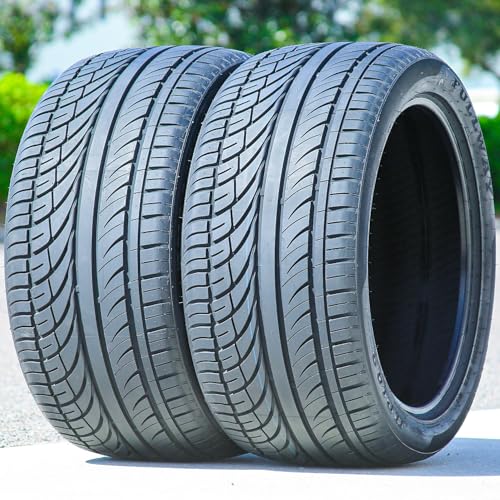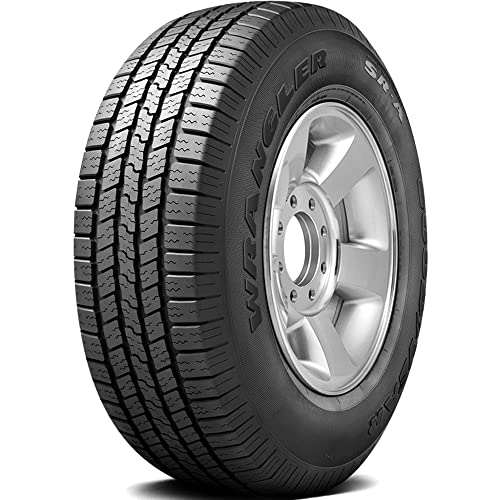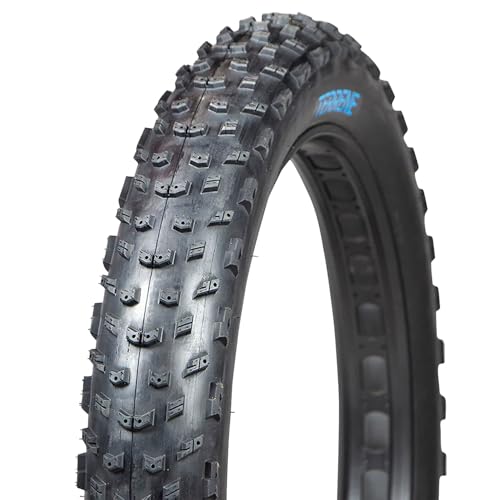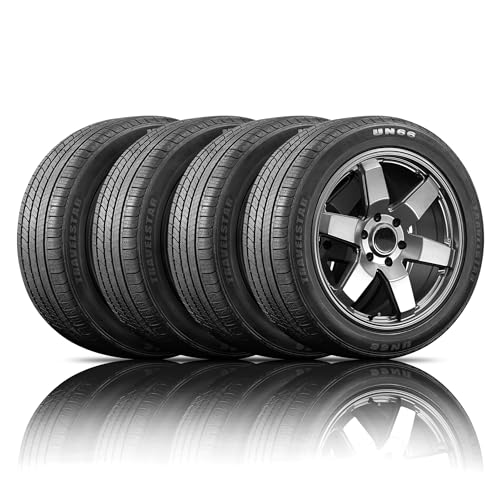10 Best All-season Tires For Snow [2025]
This post contains affiliate links. As an Amazon Associate, we earn from qualifying purchases.
Choosing the best all-season tires for snow can be a challenging task, as the multitude of options available often makes it difficult to identify the right fit for your needs. To ease this process, we meticulously shortlisted ten standout products based on performance, durability, and customer feedback, ensuring that each tire excels in snowy conditions. Our curated list not only saves you time but also eliminates the hassle of sifting through countless reviews, allowing you to make an informed decision with confidence.
Top 10 All-season Tires For Snow In The Market
All-season Tires For Snow Review
- Treadlife: N/A
- Tires Only
- Season: All Season, Performance: Performance
- Car Type: Passenger
- Load Range XL, 4-Ply Rated, 4-PR
- Treadlife: N/A
- Tires Only
- Season: All Season, Performance: High Performance
- Car Type: Passenger
- Load Range XL, 4-Ply Rated, 4-PR
- Treadlife: N/A
- Tires Only
- Season: All Season, Performance: High Performance
- Car Type: Truck/SUV
- Load Range XL, 4-Ply Rated, 4-PR
- Treadlife: N/A
- Tires Only
- Season: All Season, Performance: Performance
- Car Type: Truck/SUV
- Load Range XL, 4-Ply Rated, 4-PR
- Treadlife: N/A
- Tires Only
- Season: All Season, Performance: High Performance
- Car Type: Passenger
- Load Range XL, 4-Ply Rated, 4-PR
- 7Q23X B07V35P7LS Goodyear Wrangler SR-A All-Season Radial Tire, P275/60R20, Set of 1
- RAIN DRIVING: Wide circumferential grooves in the Goodyear Wrangler SR-A tires help move water away from the tread for enhanced traction in rain
- WET TRACTION: These tires have an exclusive wet traction compound that helps provide traction on wet roads
- TREAD LIFE LIMITED WARRANTY: Feel confident in your purchase; we back this all-season tire with a Tread Life Limited Warranty that helps protect you in the case of premature treadwear - 50,000 mi./80,000 km; excludes LT sizes; exclusions apply
- GOODYEAR: For over 125 years, we've developed the technology that keeps you moving, so you can have the confidence to go farther and more places than ever before; Goodyear produces a wide range of tires for consumers all over the world
- Treadlife: N/A
- Tires Only
- Season: All Season, Performance: Touring
- Car Type: Truck/SUV
- Load Range XL, 4-Ply Rated, 4-PR
- All-Season Fat Bike Tires: Conquer snow, sand, and soft terrain with ease using the Yippee Ki Yay 27.5x4.3" fat bike tires. These aggressive tires are designed for year-round fat tire bike enthusiasts, offering performance across diverse conditions.
- Stud Capable for Icy Trails: Prepare for winter rides with 250 stud pockets for customizable traction on icy surfaces. These stud-capable tires enhance cold-weather performance, making them essential for winter cycling enthusiasts.
- Tubeless for Versatility: These tubeless-ready 27.5" fat bike tires fit rims from 65 to 100 mm wide, providing a smoother ride and reduced weight. Perfect for fat tire bike upgrades, making them ideal for all-terrain cycling.
- Reliable Build Winter Bike Tires : Your puncture proof bicycle tires are crafted with a light casing and a durable 62a compound, these 120 TPI, aramid bead tires keep weight minimal while providing robust performance to your trail bike.
- Tubeless Tire for Versatility: These 27.5" fat bike tires are tubeless ready, fitting rims from 65 to 100 mm wide, offering a smoother ride and reduced weight for your bike and making them a great choice for fat tire bicycle upgrades for any terrain.
- ► PERFORMANCE - Jeremywell snow chains function admirably and superior whether you are stuck in the sand, mud, snow, ice, climbing, or other rising circumstances. Your car will get more footing in an awful circumstance.
- ► DURABLE - Jeremywell snow chains are constructed out of quality steel, thicken TPU, steel studs, and aluminum alloy fastener, which ensures maximum footing with minimal brake separation and slipping without braking. Bears low temperature and endure abrasion.
- ► EASY INSTALLATION - Jeremywell snow chains are easy to install and safe to use. The snow chain can be fitted in minutes, without the jack or moving the car.
- ► UNIVERSAL FIT - Jeremywell snow chains can be effortlessly fitted to most standard sizes of alloys or steel wheels on cars, vans & RV's whose car tires width from 165-275mm/6.5"-10.8".
- Quantity Per Order: 1
- Optimized for CUV/SUV dynamics: Engineered specifically for modern CUV/SUV applications, this tire delivers precise steering response and exceptional handling stability while maintaining cabin-quiet comfort.
- All-season Performance: M+S Rated for year-round versatility, delivering dependable traction in rain, light snow, and variable road conditions.
- Acoustic Comfort: Optimized pitch design minimizes noise for serene driving experience.
- Advanced Tread Designs: Asymmetrical tread design enhances performance through optimized dry/wet traction balance.
- Enhanced wet grip: Drive safer in rain while saving fuel - our silica-tech tires grip when it's wet and roll easier when it's dry.
Our Review Process
To ensure you get reliable product recommendations, we follow a detailed review methodology that includes:
- Market Research: Scanning best-selling and trending products in this category.
- User Feedback: Reviewing customer reviews, star ratings, and complaints.
- Hands-On Testing: Trying select products ourselves when feasible.
- Feature Comparison: Evaluating specs, durability, pricing, and safety.
- Expert Opinions: Consulting with niche experts or credible reviewers.
We independently select the top 10 options based on value, quality, and usability. To learn more, visit our detailed review process.
Key Considerations Before Buying All-Season Tires for Snow
1. Understand the Difference Between All-Season and Winter Tires
All-season tires are designed to perform well in a variety of conditions, including light snow. However, they are not specifically engineered for heavy snowfall or icy conditions like dedicated winter tires. It’s essential to recognize that while all-season tires can handle some winter conditions, they may not provide the same level of traction and safety as winter tires in extreme weather.
2. Tread Design and Depth
The tread pattern and depth of the tire play a significant role in its ability to grip snowy and icy roads. Look for all-season tires with a deeper tread depth and features like sipes (small slits in the tread) that enhance grip on slick surfaces. A tread wear indicator can help you assess when the tire is no longer safe for winter conditions.
3. Temperature Range
All-season tires are designed to perform in a wide range of temperatures, but they may not be formulated for the extreme cold typically experienced during winter months. Check the tire’s temperature range specifications to ensure they can handle the cold conditions prevalent in your area.
4. Vehicle Compatibility
Ensure that the all-season tires you are considering are compatible with your vehicle’s make and model. Check the manufacturer’s recommendations for tire size and specifications to avoid purchasing tires that could affect your vehicle’s handling or safety.
5. Performance Ratings
Look at the performance ratings of the all-season tires you are considering. Check for specific ratings related to snow and wet conditions. Many tire retailers provide performance metrics that can help you compare different tire options based on their winter capabilities.
6. Price vs. Quality
While it may be tempting to choose the cheapest option available, remember that investing in high-quality all-season tires can save you money in the long run through better performance, increased safety, and longer lifespan. Research various brands and read customer reviews to gauge the overall quality and reliability of the tires.
7. Consider Your Driving Habits
Your driving habits can greatly influence your choice of all-season tires. If you frequently drive in areas with heavy snow or ice, you may want to consider dedicated winter tires instead. However, if you encounter only occasional light snow, a good set of all-season tires may suffice.
8. Tire Maintenance
Regular tire maintenance is essential for ensuring optimal performance, especially in winter conditions. Check the tire pressure frequently, rotate your tires according to the manufacturer’s recommendations, and maintain proper alignment to enhance the longevity and effectiveness of your all-season tires.
9. Warranty and Guarantees
Before making a purchase, review the warranty and guarantees offered by the tire manufacturer. A solid warranty can provide peace of mind and protection against defects or premature wear, which is particularly important when investing in tires that need to perform well in various conditions.
10. Local Climate and Terrain
Consider the specific climate and terrain of your region. If you live in an area with mild winters, all-season tires may be adequate. However, if you face harsher winter conditions, you may need to reassess and consider alternative options for safety and performance on snow and ice.
FAQs
What are all-season tires and how do they perform in snow?
All-season tires are designed to provide a balance of capabilities for various weather conditions, including light snow. They feature a tread pattern that offers traction in both wet and dry conditions but may not perform as well as dedicated winter tires in heavy snow or extremely cold temperatures. While they can handle light snowfall and icy roads, their rubber compounds may harden in very low temperatures, reducing grip.
Can I use all-season tires in severe winter conditions?
While all-season tires can be used in mild winter conditions, they are not recommended for severe winter weather or deep snow. For optimal safety and performance in heavy snow, ice, and extreme cold, dedicated winter tires are the better choice. Winter tires are specifically designed with deeper treads and softer rubber compounds that remain flexible in low temperatures.
How do all-season tires compare to winter tires?
All-season tires are designed to perform adequately in a variety of conditions, but winter tires are specifically engineered for cold and snowy conditions. Winter tires typically have a more aggressive tread pattern that enhances grip on snow and ice, and they are made from rubber compounds that stay flexible in cold temperatures. As a result, winter tires provide better performance and safety in severe winter weather.
How do I know if all-season tires are right for my vehicle?
Choosing all-season tires depends on your driving needs and the climate in your area. If you live in a region with mild winters and occasional light snow, all-season tires may be sufficient. However, if you frequently encounter heavy snowfall or icy conditions, you might want to consider winter tires for enhanced safety and performance.
What should I consider when buying all-season tires for winter use?
When purchasing all-season tires for winter use, consider the tread design, rubber composition, and performance ratings. Look for tires that have a good balance of wet and dry traction, and check for any winter-specific features, such as a three-peak mountain snowflake (3PMSF) rating, which indicates that the tire meets certain snow traction performance criteria. Additionally, consider the climate in your area and your typical driving conditions.
How often should I replace my all-season tires?
The lifespan of all-season tires can vary based on driving habits, road conditions, and maintenance. Typically, all-season tires should be replaced every 6 to 10 years, but it’s essential to regularly check tread depth and overall tire health. If the tread wears down to 2/32 of an inch or less, or if you notice any signs of damage, it’s time to replace them.
Can I mix all-season tires with winter tires?
Mixing all-season tires with winter tires is generally not recommended, as it can lead to inconsistent handling and traction. If you need the benefits of winter tires, it’s best to replace all four tires with winter tires for optimal performance and safety. If you choose to keep all-season tires on the rear and winter tires on the front, you may experience uneven handling, especially in slippery conditions.
The Bottom Line
In conclusion, selecting the right all-season tire for snowy conditions is crucial for ensuring safety and performance during winter months. Our carefully curated list of the 10 best all-season tires for snow is the result of extensive research, consumer reviews, and expert evaluations. We considered factors such as tread design, rubber composition, and overall performance in cold, wet, and snowy conditions to bring you a selection that meets a variety of driving needs and preferences. Each tire in this list has been rigorously tested to ensure reliability, traction, and comfort, making them suitable options for drivers who face unpredictable winter weather.
By following our recommendations, you can make a confident choice that aligns with your vehicle type and driving habits. Investing in one of these top-rated all-season tires will not only enhance your driving experience but also provide peace of mind as you navigate through snow and slush. Whether you’re commuting to work, taking a family trip, or simply running errands, these tires will help you maintain control and stability on the road. With the right all-season tires, you can embrace winter driving with confidence, knowing you’re equipped to handle whatever the elements may throw your way.









